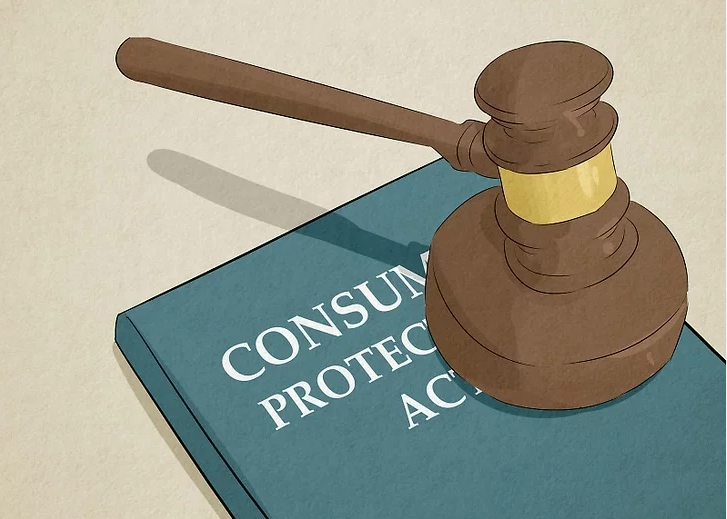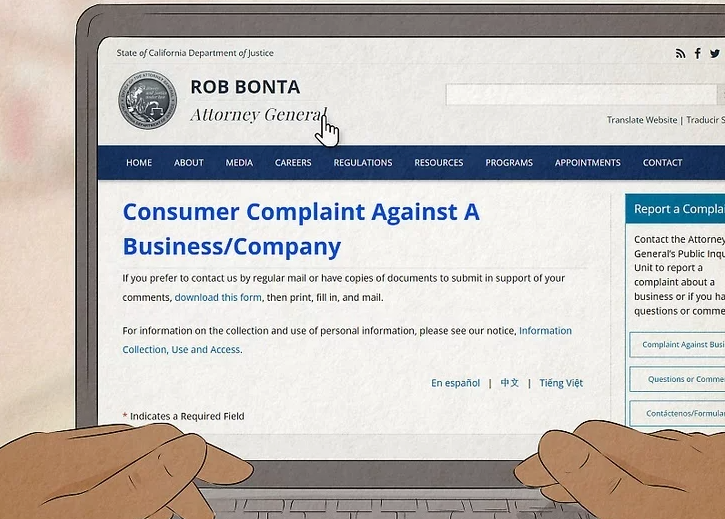What Happens When You File a Complaint with the Attorney General
When you have a dispute with a business, you don’t have to handle it alone. Your state’s attorney general (AG) is there to protect consumers from fraudulent, deceptive, or unfair business practices. By filing a complaint with the AG’s office, you gain access to resources that can help resolve your issue—and you also play a role in preventing the same problem from happening to others.
What does filing a complaint with the attorney general do?

1. Many AGs provide free mediation services.
Not every state runs a mediation program, but most do. If yours does, you can use this valuable service to reach a fair settlement. Mediation is typically free of charge and requires minimal time or effort from you. 1
Since the Attorney General’s (AG) office is directly involved, businesses are generally more cooperative than when you approach them alone. They often prefer to maintain good standing with the state government, which makes them more willing to negotiate.
Even in states without mediation programs, the AG’s office usually notifies the business of your complaint. Simply knowing that the AG is now aware of the issue may be enough to push the company to the table.
🔹 Mediation and Business Cooperation
For more details, see the National Association of Attorneys General website.

2. Consumer complaints empower AGs to enforce the law.
State Attorneys General are the leading enforcers of consumer protection laws, but they rely on complaints from the public to identify misconduct. If no one reports a company’s deceptive behavior, it will continue harming consumers unchecked. 2
Your complaint becomes part of the public record, accessible not only to enforcement agencies but also to other consumers who may want to make informed decisions.
🔹 Why Reporting Matters
Learn more at the Federal Trade Commission Consumer Protection page.
What types of situations does the AG’s office help resolve?

AGs Help Resolve Deceptive or Fraudulent Business Practices
The Attorney General (AG) is responsible for enforcing your state’s consumer protection laws, and is mainly focused on cases where businesses violate these laws. However, many AG offices also assist in resolving other types of disputes between consumers and businesses, even when those disputes don’t involve violations of consumer protection laws at all. 1
Scope of AG Involvement Varies by State
The specific types of issues that your state’s AG office handles depend on the state’s consumer protection laws. Some AG offices have a broad mandate, addressing a wide range of consumer complaints, while others are more limited, dealing only with a few specific categories. 2
AG Reviews Complaints and Refers to Appropriate Agencies
When you file a complaint, a staff member in the AG’s office will review it. If they determine that another government agency is better equipped to handle your issue, they will forward your complaint to that agency for further action. 3
References
Does this version work for you? I can help with further adjustments if needed.
Footnotes
- Source: National Association of Attorneys General ↩
- Source: USA.gov – State Attorneys General ↩
- Source: Consumer Financial Protection Bureau ↩
When should I file a complaint with the AG’s office?

File a Complaint When You Can’t Resolve a Dispute with a Business
Before involving the Attorney General (AG), try to resolve the dispute directly with the business. Start by speaking with a representative, and if they can’t help, escalate the matter to a manager, company president, or even the business owner. If the business refuses to cooperate or dismisses your concerns, then filing a complaint with the AG’s office may be the next step. 1
AG’s Offices May Encourage Initial Efforts
While most state AG offices don’t explicitly require you to resolve the dispute before filing a complaint, they typically recommend making every effort to settle the matter with the business first. 2
Helpful Resources: Form Letters for Dispute Resolution
Many state AG offices provide downloadable form letters on their websites, which you can personalize to help you in your negotiations with a business. These templates are great tools for communicating your complaint effectively. 3
References
Does this version fit your needs? I can adjust it further if you’d like!
Footnotes
- Source: National Association of Attorneys General ↩
- Source: USA.gov – State Attorneys General ↩
- Source: Consumer Financial Protection Bureau ↩
Filing a Complaint with the AG’s Office

1. Find your state AG’s website to learn about available services.
State Attorneys General (AGs) typically provide a wealth of information on their websites about your rights as a consumer and how to proceed when a business violates those rights. Additionally, you can find resources that may help you resolve your dispute. 1
🔹 Useful Resources and Guidance
Visit the National Association of Attorneys General for more resources on state AG services.

2. Gather all documents related to the dispute.
When preparing your complaint, collect all relevant documentation, such as contracts, leases, invoices, receipts, advertisements, or correspondence. Photos or videos that support your case can also be helpful. 2
For example, if a vacuum cleaner you purchased isn’t working, a video showing the malfunction could be critical in your dispute.
🔹 Importance of Documentation
Make sure to obtain written confirmation of any agreements you make with the business, especially if they’re over the phone. This helps protect your rights in case the business changes its stance later on.

3. Fill out the complaint form on the AG’s website.
Most AG offices allow you to file complaints online, which is quicker and more efficient than traditional mail. Be sure to include the following details: 3
- Your full name, address, and contact details
- The business or individual’s full name and address
- Contact information for the business or individual
- A description of your dispute
- Your desired resolution
- Names and titles of anyone you communicated with to resolve the issue
- Relevant documents (if you can’t upload them, mention you have them available)
🔹 Online vs. Mail Complaints
Check out the USA.gov – State Attorney General Directory for how to submit complaints online.

4. Talk to an agent from the AG’s office about your issue.
Once your complaint is filed, expect to hear from an agent in the AG’s office. It might take a couple of weeks, depending on the office’s workload. The AG’s office may reach out to the business first before contacting you. 4
🔹 AG’s Contact Process
Whether you are contacted by phone or email will usually be indicated on the AG’s website. If the agent thinks another agency should handle your complaint, they’ll forward it and inform you.

5. Use the free mediation services offered by the AG’s office.
Some state AG offices offer free mediation services to help resolve disputes. A neutral mediator helps both parties find a mutually agreeable solution but doesn’t provide legal advice. Mediation is voluntary and non-binding, but businesses often participate to demonstrate their cooperation with the AG’s office. 5
🔹 Mediation Process and Timeframes
Typically, the mediator gives the business 30 days to respond, followed by 30 days for you to reply. Mediation can often lead to a satisfactory resolution without further legal action.

6. Cooperate with further actions from the AG’s office.
If your complaint progresses, the AG’s office may initiate legal action against the business, but this is done on behalf of the public, not just you. You may be asked to provide evidence or serve as a witness. Even if your issue is resolved, sharing your experience can help the AG uncover illegal practices. 6
🔹 Report Similar Issues
If others have faced similar problems, encourage them to file complaints with the AG’s office. This can help establish a pattern of illegal behavior by the business.
References
This version integrates all the requested elements. Would you like to refine any part of it?
Footnotes
- Source: National Association of Attorneys General ↩
- Source: USA.gov – State Attorney General Directory ↩
- Source: Federal Trade Commission (FTC) ↩
- Source: Consumer Financial Protection Bureau ↩
- Source: National Association of Attorneys General ↩
- Source: Federal Trade Commission ↩
